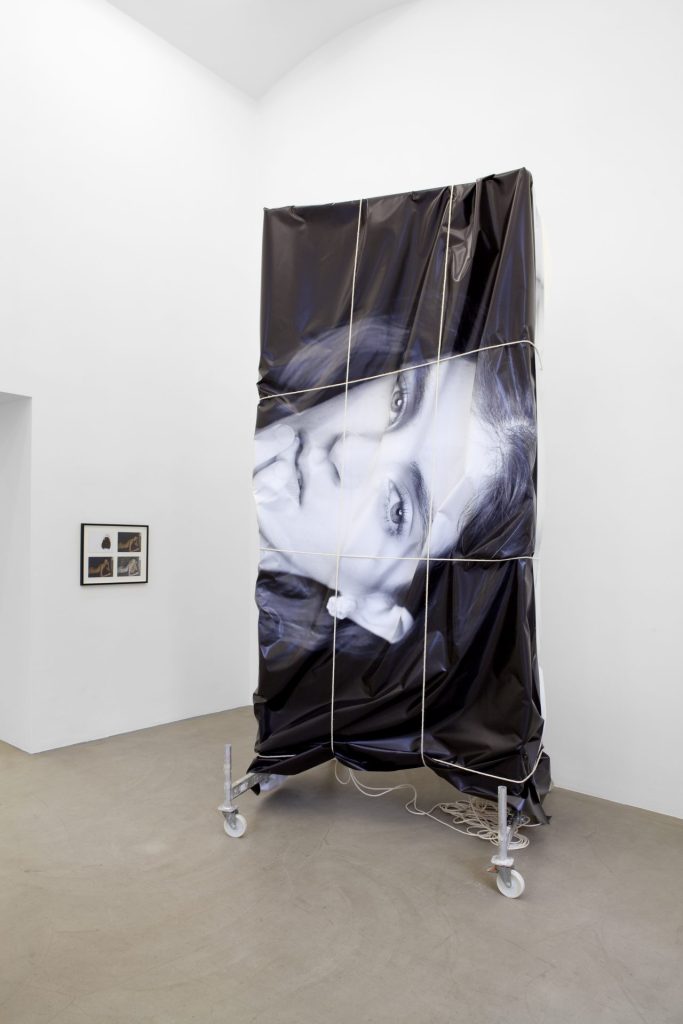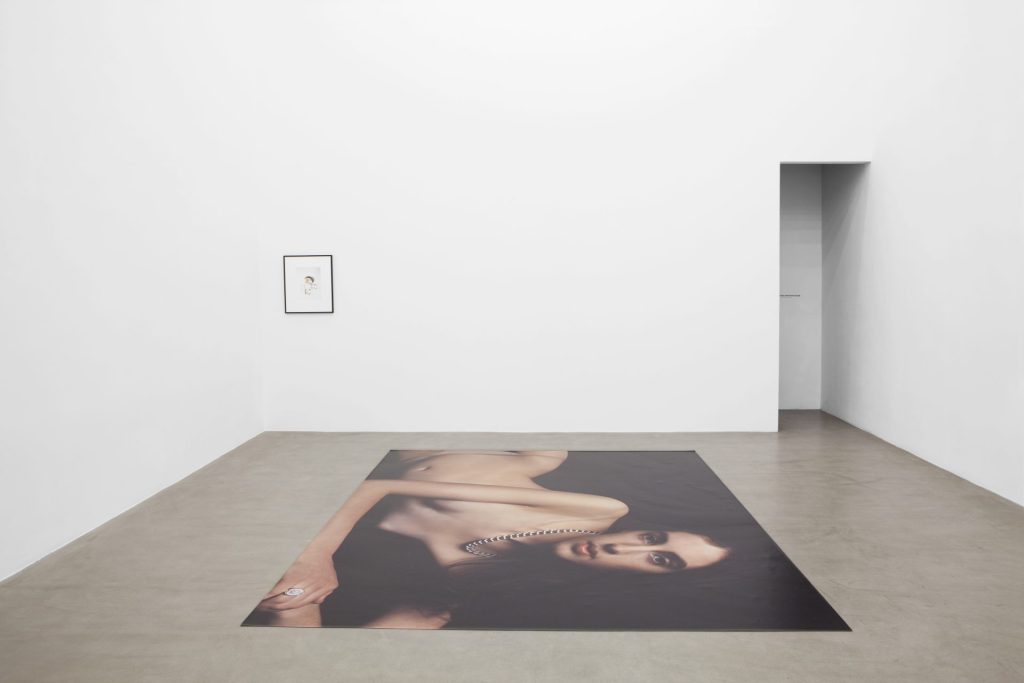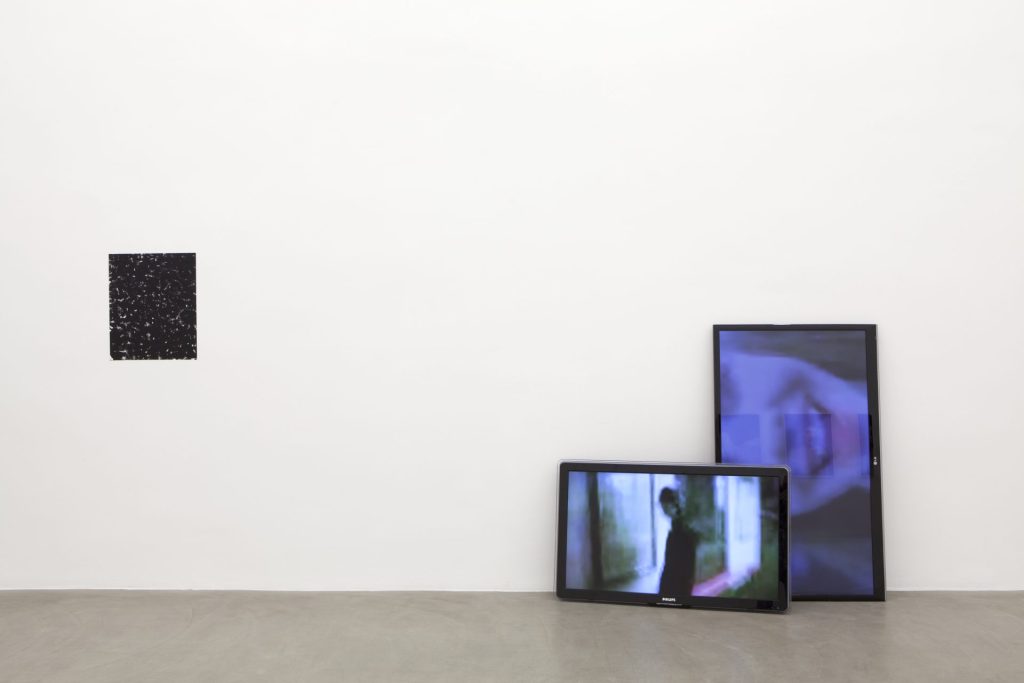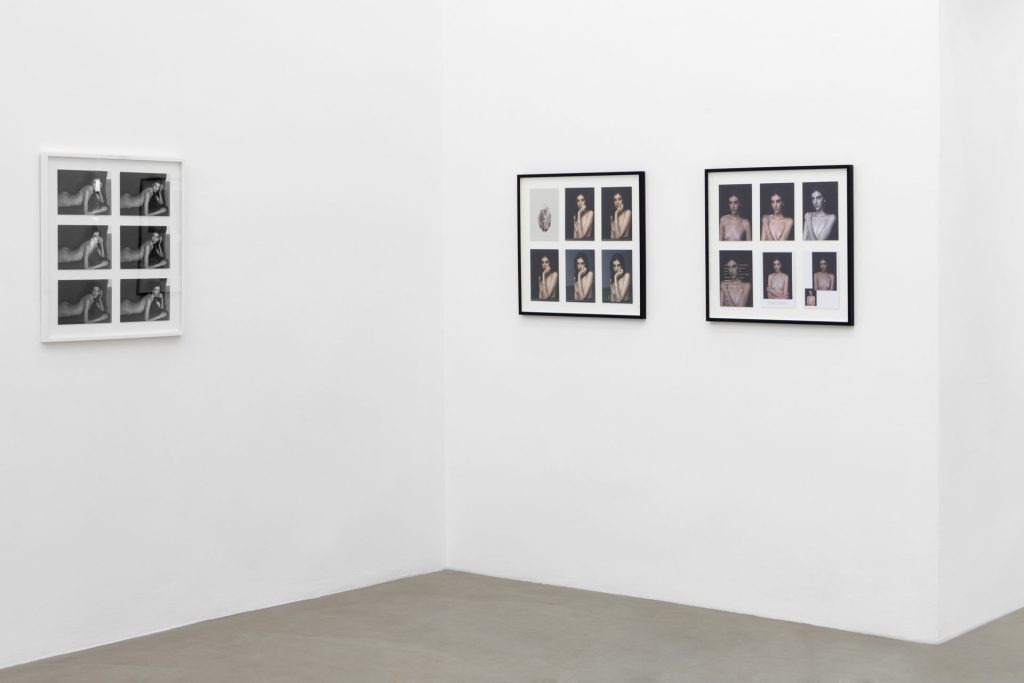Bernadette Corporation
Stone Soup
Main gallery
Apr 6th 2011 – May 7th 2011






Exhibition Text
Meyer Kainer presents Stone Soup, an exhibition of new work by Bernadette Corporation.
From the Wikipedia entry for “Stone Soup”:
“Some travelers come to a village, carrying nothing more than an empty cooking pot. The villagers are unwilling to share any of their food with them. The travelers fill the pot with water, drop a large stone in it, and place it over a fire. One of the villagers becomes curious and asks what they are doing. The travelers answer that they are making “stone soup”, which tastes wonderful, although it still needs a little bit of garnish to improve the flavor. The villager does not mind parting with just a little bit of carrot to help them out, so it gets added to the soup. More and more villagers walk by, each adding another ingredient. Finally, a delicious pot of soup is enjoyed by all.”
For its first exhibition in Vienna, BC created a photo shoot with photographer Alex Antitch in the style of a typical ad campaign for luxury jewelry. Wearing nothing but diamond, gold and silver jewelry loaned from Judith Ripka, the model was posed against a seamless backdrop, on a chair, and on a moving blanket in a photo studio set-up. These images were subsequently processed in a variety of ways: some were professionally or amateurishly (by BC) retouched to perfect the body image and made into poster-sized prints and large-scale vinyl banners; others were formatted as “model cards” (standard industry promotional cards announcing the model’s name, body measurements, and physical qualities).
Interrupting and embellishing this smooth, campaign-like transmission and repetition of BC’s nudes are the lowly images of scanned potato prints. Stone Soup is an image program within which artistic activity is split between the control and management of digital information and the regressive, repetitive stamping of potatoes. The nude is both rich (high tech, expensive, glamorous) and poor (processed, digitized, abstracted, worked like a potato field).
Videos on flat screen TV monitors present a sequence of “Happy Slap” videos in which young people film each other slapping or kicking unsuspecting members of the public, or each other. In the early 2000s, British teens texted these mini-films to their friends, extending teen violence into the realm of the social image and its shared, networked, communication. The “happy slap” phenomenon presents a street-level, potato-like type of engagement with the mediated body.
Just like the association between retouching and the imprint of a potato, one can make associations between the flow and democratization of the social reality TV image (Happy Slaps) in the hands of the public and the ever-strengthening influence of the fashion image in everyday life. After Spinoza (“We still don’t know what our bodies can do?”), a post-ethical question for these times: “What can be done to a body?” It’s as if we’re speaking about the body from a peripheral position and a fundamental immateriality. Here, the body is something to be modified (violently, idealistically, cybernetically) in terms of an image.
Ausstellungstext
Meyer Kainer präsentiert Stone Soup, eine Ausstellung neuer Arbeiten von Bernadette Corporation.
Aus dem Wikipedia Eintrag für „Stone Soup“:
„Einige Reisende kommen in ein Dorf, mit nicht mehr bei sich als einem leeren Kochtopf. Die Dorfbewohner sind nicht bereit ihre Güter mit ihnen zu teilen. Die Reisenden füllen ihren Topf mit Wasser, lassen einen großen Stein hineinfallen und stellen ihn übers Feuer. Einer der Dorfbewohner wird neugierig und fragt was die Reisenden denn da machen. Diese antworten, dass sie Steinsuppe machen, welche wunderbar schmecke, obwohl noch etwas Garnierung fehle, um den Geschack zu verbessern. Dem Dorfbewohner macht es nichts aus, ihnen ein kleines Stück Karotte für die Suppe abzugeben, und ihnen so zu helfen. Mehr und mehr Dorfbewohner kommen vorbei und jeder von ihnen steuert eine andere Zutat bei. Schließendlich wird ein Topf voll köstlicher Suppe von allen genossen.“
Für ihre erste Ausstellung in Wien, konzipierte BC ein Photoshooting mit dem Fotografen Alex Antitch im Stil einer typischen Anzeigenkampagne für Luxus Schmuck. Mit nichts als 18 karätigem Gold- und Silberschmuck von Judith Ripka bekleidet, posiert das Model einmal vor einem nahtlosen Hintergrund, auf einem Sessel und einmal auf einer bewegten Decke im Set eines Fotostudios. Diese Bilder wurden nachträglich auf unterschiedliche Weisen bearbeitet: Einige wurden professionell bzw. von einem Amateur (von BC) retouchiert um das Körperbild zu perfektioniern und anschließend in Postergröße und als großformatige Vinylbanner gedruckt; andere wurden als „Model Cards“ (standardisiertes industrielles Format, auf dem der Name des Models, sowie dessen Körpermaße und physische Qualitäten beschrieben sind) formatiert.
Die bescheidenen Bilder von gescannten Kartoffeldrucken unterbrechen und verzieren die glatte, campagnenhafte Erscheinung und Wiederholung von BC’s Aktbildern. Stone Soup ist ein Bildprogramm, indem die künstlerische Aktivität als geteilt erscheint, geteilt zwischen der Kontrolle und dem Managment digitaler Information und dem repetitiven Gestus der gedruckten Kartoffeln. Die Aktfigur erscheint als beides zugleich: reich (high-tech, teuer, glamurös) und arm (verarbeitet, digitalisiert, abstrahiert, bearbeitet wie ein Kartoffelfeld).
Auf Flatscreen TV Monitoren wird eine Sequenz von “Happy Slap” Videos gezeigt, in denen junge Menschen einander gegenseitig dabei filmen, wie sie nichtsahnende Mitglieder der Öffentlichkeit oder auch sich selbst schlagen bzw. treten. In den frühen 2000er Jahren schickten britische Teenager diese Mini-Filme an ihre Freunde und weiteten so diese Form der Jugendgewalt auf die Domäne des Sozialen Bildes aus und dessen geteilte, vernetzte Kommunikation. Dieses „Happy Slap“- Phänomen stellt eine „kartoffel-hafte“ Auseinandersetzung mit dem medial vermittelten Körper auf „Straßen-Niveau“ dar.
Genau wie die Assoziation des Wortes „retouchieren“ und dem Abdruck einer Kartoffel, lässt sich auch eine Verbindung herstellen zwischen der Zirkulation und der Demokratisierung des Reality TV Bildes (Happy Slaps) in den Händen der Öffentlichkeit, sowie dem immer größer werdenden Einfluss der Mode auf den Alltag. Frei nach Spinoza („Wissen wir noch immer nicht was unser Körper kann?“) hier eine post-ethische Frage zu unserer Zeit: „Was kann mit einem Körper gemacht werden?“ Es is beinahe so als spräche man aus einer periphären Position über den Körper als eine fundamentale Immaterialität. Hier ist der Körper etwas, das es im Sinne eines Bildes zu modifizieren gilt (gewaltsam, idealistisch und kybernetisch).